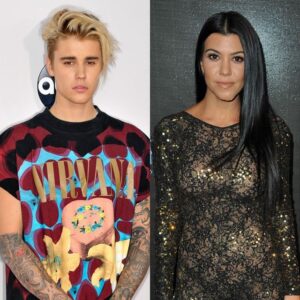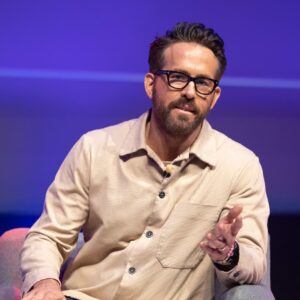The conversation you’ve transcribed is a delicate one, delving into rumors and speculation about Shannon Sharpe’s sexuality and the broader issues of acceptance and representation in the LGBTQ+ community, particularly in Hollywood and the black community. Here’s a refined version of the discussion:

The ongoing speculation about the sexuality of individuals in Hollywood, including Shannon Sharpe, is a topic that often resurfaces. It’s crucial to distinguish between rumors and facts, as well as to understand the potential impact of such speculation.
While there’s no definitive evidence to support claims about Sharpe’s sexuality, the conversation suggests that he might be uncomfortable with the rumors surrounding him. It’s noted that Sharpe vigorously defends his heterosexuality, raising questions about why it bothers him so much to be labeled as gay. This discomfort may stem from societal pressures or personal insecurities.

The discussion also touches on the role of the entertainment industry in shaping perceptions of masculinity and sexuality. The presence of a personal stylist, as described in the conversation, adds fuel to the speculation. However, it’s important to recognize that having a stylist doesn’t inherently indicate one’s sexual orientation.
The conversation then shifts to the potential benefits of openly embracing one’s sexuality, particularly in today’s more accepting society. Embracing one’s identity could lead to career opportunities and positive representation, as suggested in the case of Paul Mooney, who is cited as an example.
Ultimately, the conversation advocates for authenticity and self-acceptance. It highlights the importance of being true to oneself and not letting societal expectations dictate one’s identity. It also underscores the need for greater understanding and acceptance within communities, regardless of sexual orientation.
News
“”Breaking News:Ryan Reynolds and Wife to Pause Careers for Dedicated Parenting and Charity Work!(GREAT)…
Ryan Reynolds and Blake Lively Announce Career Hiatus to Focus on Family and Philanthropy In an unexpected turn of events, Hollywood power couple Ryan Reynolds and Blake…
“”RICH FASHION:Blake Lively dazzles in $500,000 jewelry at American Rugby Championship, cheering on Taylor Swift’s beau!
Blake Lively, known for her impeccable style and roles in hit shows like “Gossip Girl,” chose this high-profile sports event to flaunt an exquisite jewelry collection, including…
“”Hottest News Today: Ryan Reynolds Announces Family Decision to Welcome Another Baby in 2025!(I LOVE YOU)…
“Ryan Reynolds and Blake Lively’s Family Grows: Expecting Another Bundle of Joy in 2025” In a heartwarming announcement that has left fans ecstatic, Hollywood power couple…
(3)OMG MINUTES AGO: Feds expose Kourtney Kardashian’s XTAPE SECRET with Justin Bieber as a minor
attention surrounding the case. The collaboration between federal agencies suggests a coordinated effort to address any possible legal violations comprehensively. This multi-agency approach underscores the seriousness of…
“”Unmasked: Ryan Reynolds Spills on the Tracks He Bans from His Eardrums!…
As one of Hollywood’s most beloved comedic actors, Ryan Reynolds has made a career out of playing sarcastic, self-deprecating characters who find humor in life’s absurdities. Through…
“”Perfect on Screen, Imperfect Within: Ryan Reynolds’s Candid Confessions on Perfectionism’s Price…
Ryan Reynolds is known for his dedication to his craft, but there can be downsides to striving for perfection. As one of Hollywood’s most bankable leading men,…
End of content
No more pages to load











